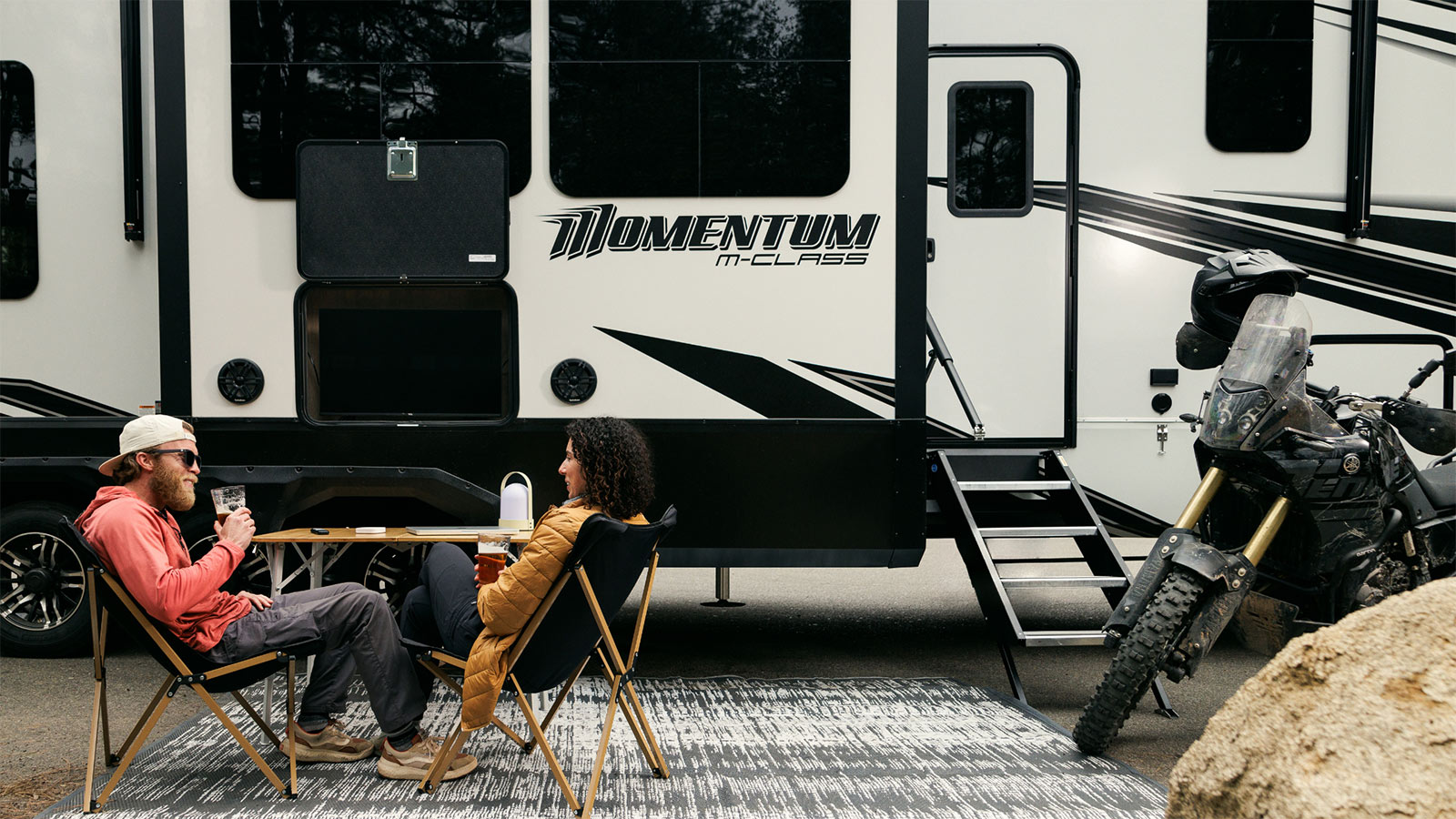
Secure comfortable, safe, and affordable accommodations while living as a nomad.
A location-independent lifestyle is the new American dream. People of all ages dream of traveling full-time, and with more and more opportunities for digital nomad jobs, that dream is becoming a reality for many.
Despite the travel glitz and glam, the nomad lifestyle is not without its disadvantages. Finding housing is among the top challenges digital nomads face on a regular basis. It can be hard to come by digital nomad accommodations that are safe, affordable, and clean. Though difficult, it’s not impossible—and it doesn’t have to be all hostel stays. Here are a few different ways to approach digital nomad housing.
For the Road Tripper: RVs and Vans
For serial on-the-goers, an RV or a van is a highly logical accommodation option, especially for those who plan to stay domestic and keep international travel to a minimum.
Purchasing an RV or van is financially sensible for those who plan to live full-time in their rig for extended periods of time. However, rentals are also an option if this is a lifestyle you’d like to try out, but are hesitant to commit to. (Understandable: Frequenting dump stations isn’t every nomad’s idea of fun).
P.S. Learn more about how to work in an RV if you plan to make the jump to become a full-time road lifer.

For the Social Traveler: Hostels and Co-Living Spaces
Hostels and co-living spaces offer an excellent environment for making friends. Traveling full-time can get lonely, so social travelers may want to consider this type of accommodation. Plus, hostels and shared rooms tend to be among the most affordable digital nomad housing options. Sure, they come with their fair share of downsides—like snoring roommates, for instance—but the price to pay is usually small when you consider the cost savings and new friends.
For the Budget Traveler: Work-Stay Exchange
If you’re looking for a unique way to fund your travels, consider a work-stay exchange. This type of digital nomad accommodation varies on a case-by-case basis, but the general idea is that you get free housing in exchange for work. Sometimes, but not always, work-stays provide compensation on top of the housing package (some call them “volunteer-stay exchanges” if additional compensation isn’t provided). These exchanges can range from staying on a farm and working as a farmhand to teaching English as a second language to students in the area.
For the Slow Traveler: Extended-Stay Rentals
Some digital nomads like to take their time, spending weeks or even months in the same general area. Not only does this travel method allow you to more deeply immerse yourself into the local culture, but it tends to be much less expensive than hopping from hotel to hotel weekly. Traveling slowly means you can make more meals yourself, take advantage of extended-stay accommodation rates, and spend more time relaxing and partaking in free or cheap activities—rather than feeling like you have to squeeze it all in. Plus, staying for longer can really make your digital nomad apartment feel like home.
In a Pinch: Hotels and Short-Term Rentals
Short-term stays, such as in hotels or Airbnbs, tend to be significantly more expensive than all of the aforementioned options. However, they do typically have more amenities and greater security. They can also be a great option for a reset—a clean shower and a private bedroom go a long way for the weary traveler.
Where to Find Digital Nomad Accommodations
The real challenge comes after deciding which type of digital nomad accommodation feels right for you: actually finding and securing that ideal accommodation. Luckily, the internet has made house-hunting a lot easier than it might’ve been in previous decades.
- Facebook groups: Join groups for nomads, rentals, house-sitting, and work-stays in the area you’re interested in traveling to.
- Facebook marketplace: Check listings for short-term or long-term rentals.
- Short-term rental sites: Airbnb, VRBO, Booking.com, FlipKey, Nomad Stays, and other sites can help you find short-term stays in certain areas.
- Medium and long-term rental sites: Try Anyplace (for urban travelers), SpotAHome, Furnished Finder, and Home To Go can help you find longer-term stays.
- House sitting sites: Browse Trusted Housesitters, HouseSitSearch, and MindMyHouse for house-sitting opportunities.
Work exchange sites: Workaway, Worldpackers, and HopperJobs are good places to start if you’re looking for work or volunteer exchanges.
FAQs
Do digital nomads stay in hostels?
Yes, many digital nomads stay in hostels, especially younger travelers and those on a budget. Hostels generally rank among the most affordable of accommodation types, and staying in them is a great way to meet new friends.
Is Airbnb good for digital nomads?
Airbnb can work for digital nomads, but most find it too expensive to use long-term. Additionally, many digital nomads feel that Airbnb policies are too restrictive; since plans can change quickly as a full-time traveler, last-minute bookings are often easier, as are bookings with more flexible rebooking and cancellation policies. However, a digital nomad Airbnb can work in a pinch.
Are digital nomads wealthy?
Sure, some digital nomads are financially wealthy, but not all are. Many—if not most—digital nomads prioritize life experiences over money, so in fact, many are not wealthy. Digital nomads, especially younger ones, tend to be fiscally savvy and travel on a budget.
TravlFi Takeaways
Van life, hostels, and extended stay rentals are all popular among digital nomads. The ideal accommodation situation for you depends entirely on how and where you prefer to travel.
- Van or RV life makes the most sense for a stateside road tripper.
- Hostels and co-living spaces are affordable and make it easier to find nomad friends.
- Extended-stay rentals, such as a six-month furnished apartment, are excellent for slow travelers.
- Travelers on a tight budget might consider work-stay exchanges or house-sitting opportunities.
More Essential Reading for Digital Nomads:
- How This Digital Nomad Family Stays Connected on the Road
- How to Get a Digital Nomad Address: Options for Travelers
- A Digital Nomad's Guide to Managing Road Life Stress
- Filling Prescriptions While Traveling: A Guide for Vanlifers and RVers
- Top Digital Nomad Jobs: Work from Anywhere with Portable Internet
Don’t forget to set up your ESIM internet before heading off on your travels. Thanks to ESIM, TravlFi’s high-speed hotspots and routers work in the U.S., Canada, and Mexico, making it an ideal option for nomads in North America.

Article By: Amanda Capritto
Amanda Capritto is a fitness and outdoors journalist who travels full-time in a Winnebago camper van. Her work has appeared in national and global outlets like Lonely Planet, Reader's Digest, CleverHiker, CNET, and more.
